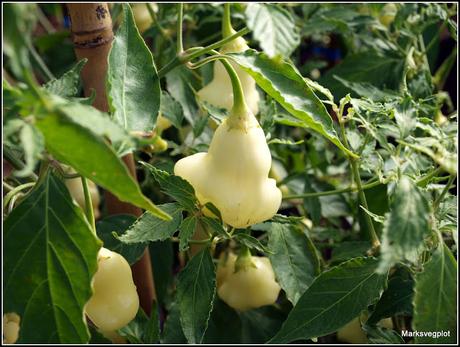
Before I do that though, I just want to say a few words...
The first thing I want to say is: "what a shame about the weather". Unfortunately it tipped it down with rain at frequent intervals (at least it wasn't cold and windy!). There's not a lot one can do about this though, and it's no use trying to hold a chilli festival in July, because most of the chillis wouldn't be ripe. Sadly, some of the stallholders due to be present at the event decided at the last minute to cancel because of the rain. I suppose you can see their point. They no doubt expected everyone to stay at home, and therefore anticipated poor sales. However, at the time we were there, there were plenty of people about, and I'm sure that many of them (like us) came away laden with purchases. Hopefully the second day of the festival was better.
The other thing I want to do is congratulate Stephen and his team for continuing to improve the event year-on-year. This time I felt that the parking arrangements were much slicker than before, and I also really appreciated the seating that was provided for people eating and drinking.
The main attraction of course, was the chillis. This time, there were more than 160 varieties to see and try. People who know me know that I'm not one for eating loads of raw chillis - especially not the super-hot ones - so I chose not to sample any, but lots of people did. My main interest (apart from having a chat with Stephen about things like the trials of his "Challock Chilli" in which I have been participating) was photographing the chilli plants in the main polytunnel.
This is one that immediately attracted my attention. It is Chilli Galapagoense - i.e. from the Galapagos islands. The foliage is very distinctive - pale green and covered in small hairs. I therefore thought it must be in the Capsicum Pubescens family, but surprisingly it's not, it's a Capsicum Annuum variety.
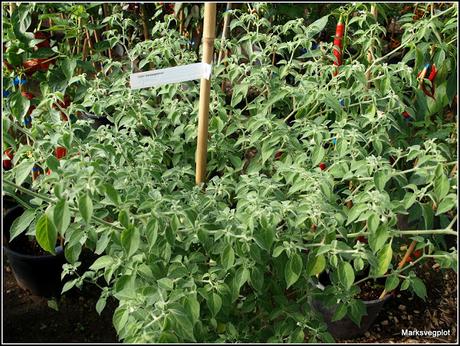
Galapagoense
The fruits are very tiny - about the size of a pea.
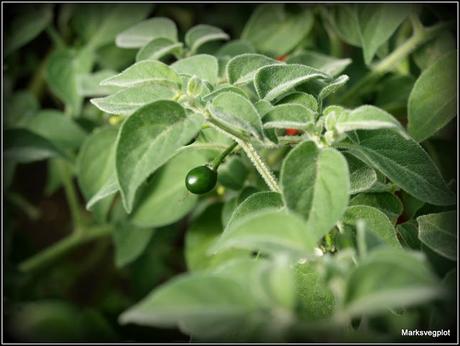
Galapagoense
Those tiny chillis remind me of the "Chiltepin", popularly reckoned to be the progenitor of many modern varieties.
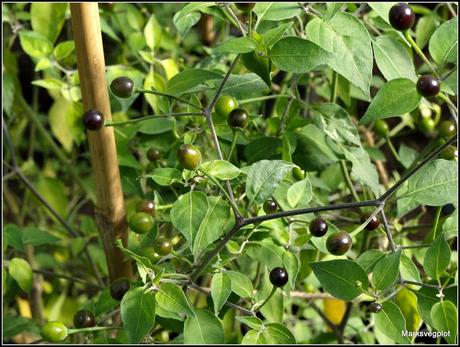
Chiltepin
These big beauties are a type of Rocoto - definitely part of the Capsicum Pubescens family!
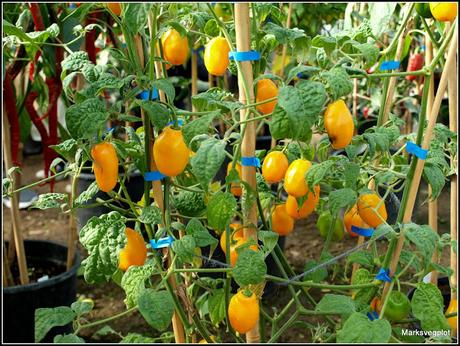
Rocoto Guatemalan Orange
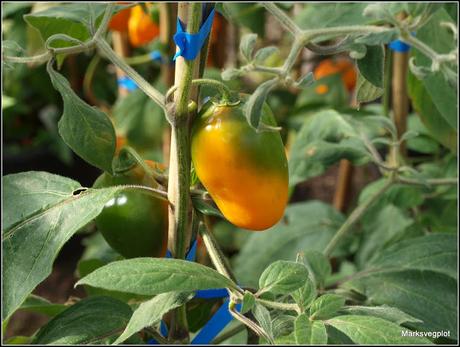
Rocoto Guatemalan Orange
Although you might at first sight mistake this for a tomato, it is also a rocoto chilli:
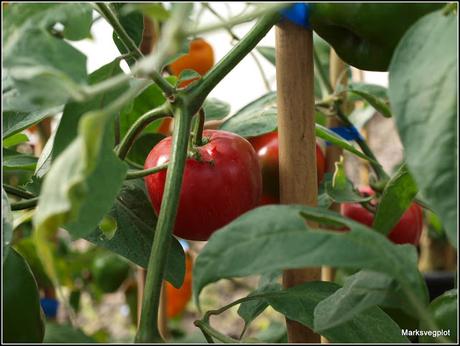
Here it is in its immature state - very tomato-like.
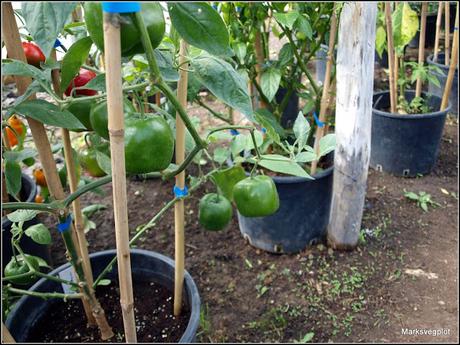
At present I'm very much enamoured of the purple-coloured chillis, like these "Fidalgo Roxa":
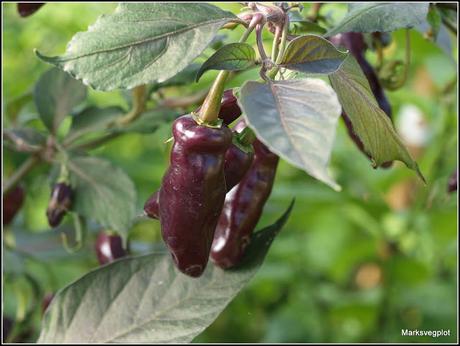
Fidalgo Roxa
There was also this attractive hybrid (the label says it all...)
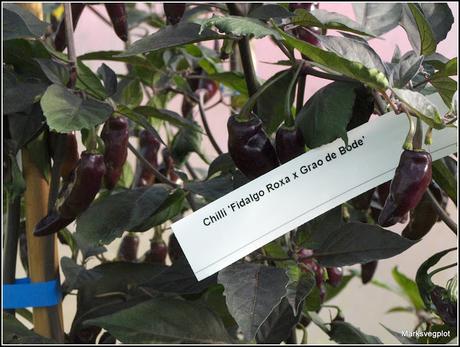
"Razzamatazza" could also be described as purple-coloured:
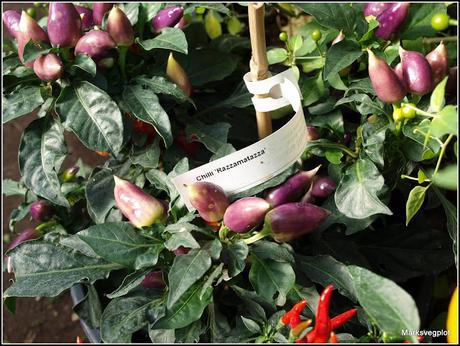
Razzamatazza
Going a bit darker, what about this "Black Olive"?
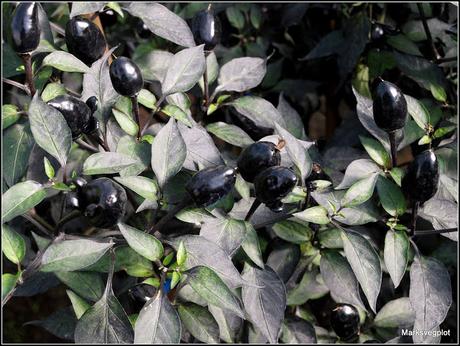
Black Olive
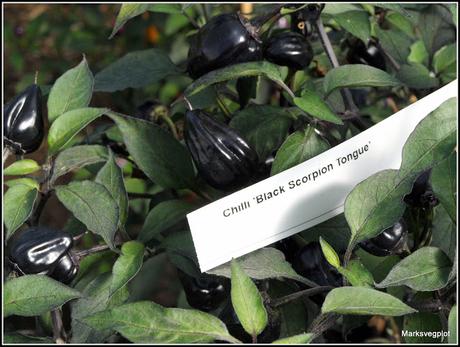
Black Scorpion Tongue
You know the Jalapeno? A degree of "crackling" on the skin is considered desirable.
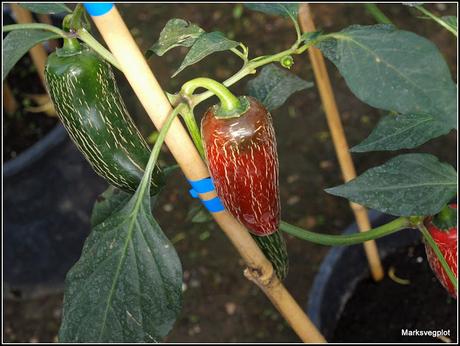
Jalapeno
But what about this - crackling taken to the extreme! This is Jalapeno Farmers' Market Potato.
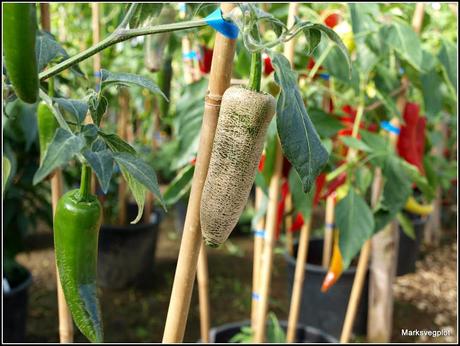
This monster is "Holy Mole" - Mole pronounced "Mo-lay" of course, like Guacamole! Not a great photo, but at least my hand gives an idea of the size of the chilli.
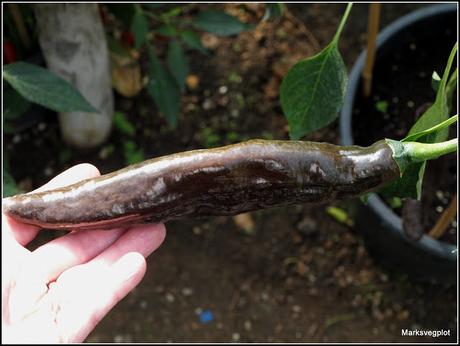
Holy Mole
This is the famous Chile de Arbol, ("Tree chilli") so characteristic of Mexican cuisine.
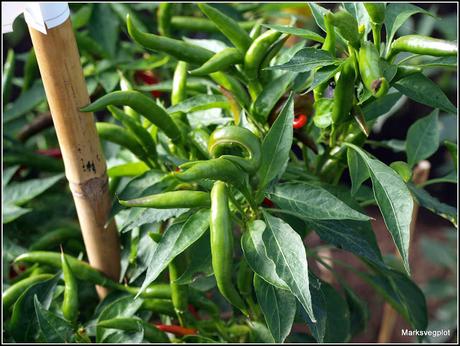
Chile de Arbol
Many readers will be aware that that I have been trialling Stephen's experimental chilli currently known as the Challock Chilli. Its parents are Jalapeno and this one - Bird's Eye Baby:
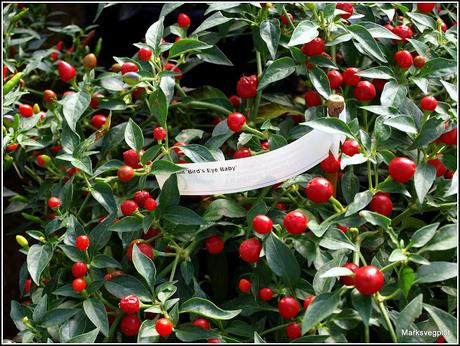
Bird's Eye Baby
Finally for today, for those of you aware of my "Not Gusto Purple", this is what Gusto Purple is supposed to look like!
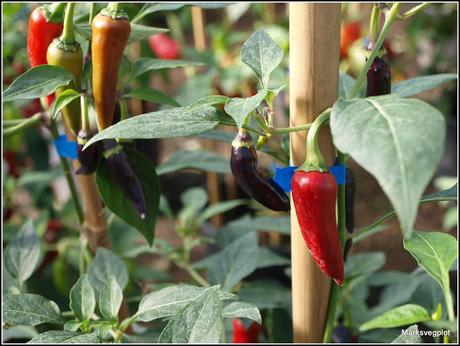
Gusto Purple
OK folks, have you got the picture? If you live within striking range of Challock (near Ashford, Kent), you need to get yourself down there for this event next year, and see things for yourself!
